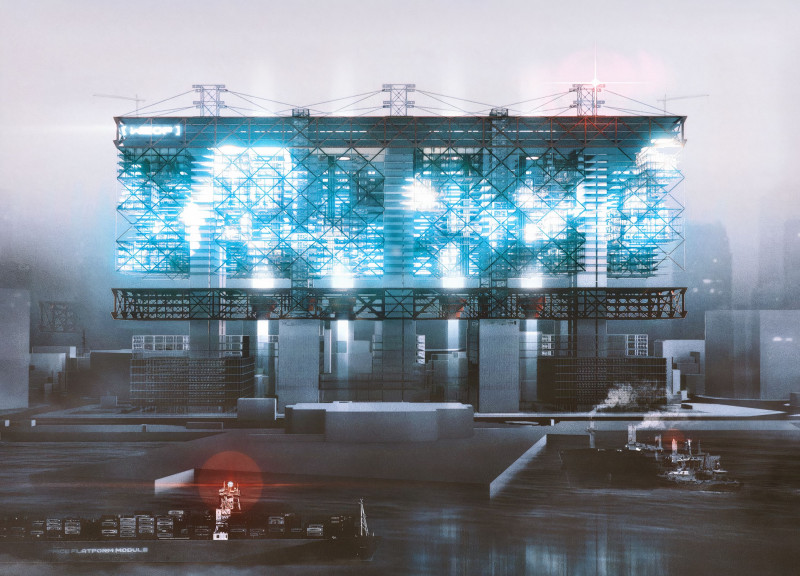5 key facts about this project
Located in the urban context of Busan, South Korea, the Sustainable Office Platform is designed to meet the changing demands of contemporary work environments while embedding principles of ecological responsibility. The project introduces a modular system that allows for adaptable configurations, supporting a variety of professional needs within a sustainable framework.
Modular Flexibility and Spatial Configuration
The office units are conceived as flexible modules that can be reassembled or reconfigured according to user requirements. This modular approach supports both individual and collaborative work styles, accommodating changes over time without compromising spatial quality. An open-plan layout enhances spatial flow and maximizes access to natural light, fostering a comfortable and productive environment.
Material Strategy and Environmental Systems
The structure combines reinforced concrete for durability, steel framing for adaptability, and biodegradable components to reduce environmental impact. Glass façades improve daylight penetration and create a visual connection to the urban surroundings. Integrated green elements—such as bio-filter boosters and planted areas—support air quality and contribute to a healthier indoor atmosphere. Together, these strategies position the office as both a functional workspace and a model for environmentally conscious urban architecture.






















































